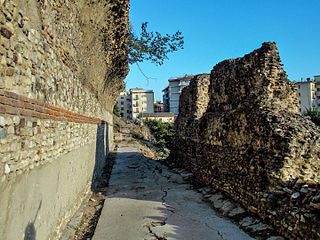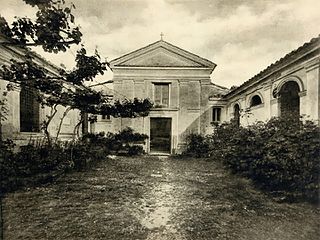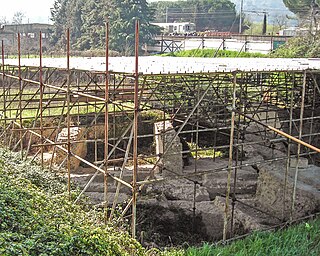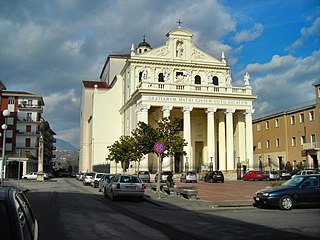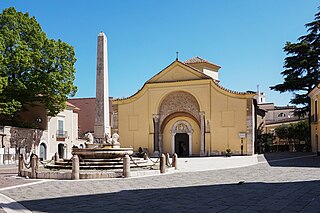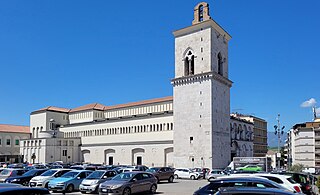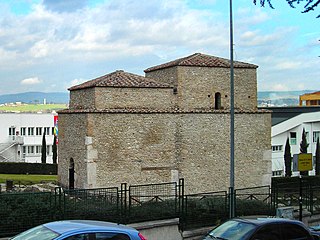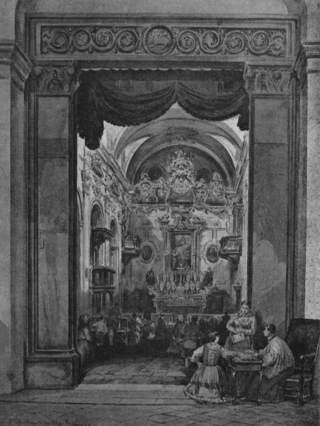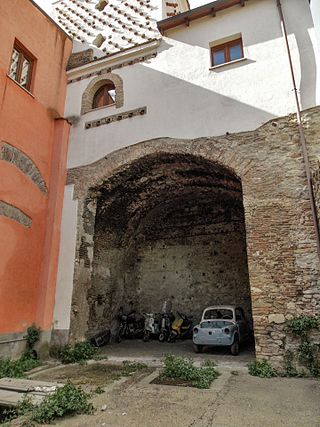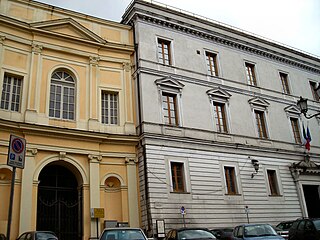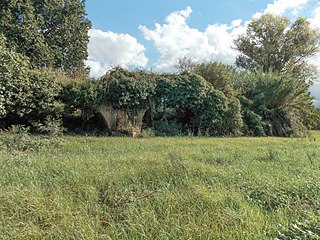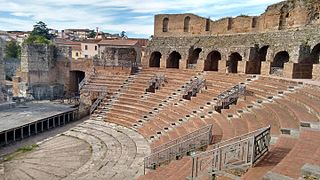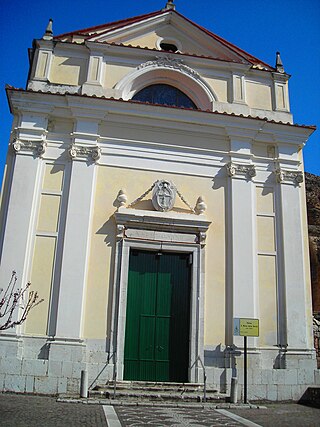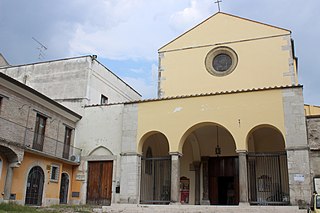15 Sights in Benevento, Italy (with Map and Images)
Legend
Welcome to your journey through the most beautiful sights in Benevento, Italy! Whether you want to discover the city's historical treasures or experience its modern highlights, you'll find everything your heart desires here. Be inspired by our selection and plan your unforgettable adventure in Benevento. Dive into the diversity of this fascinating city and discover everything it has to offer.
Sightseeing Tours in Benevento1. Santi Quaranta
The Santi Quaranta are the remains of a long cryptoporticus of the Roman age located in Benevento, between the San Lorenzo district and the rural area of Cellarulo, in correspondence with a cliff on the left of the basilica of the Madonna delle Grazie. The building consisted of a system of vaulted covered galleries, of uncertain dating and use; more precisely, there was at least one long corridor to which two transverse, shorter ones were connected.
2. Ex cimitero dei Morticelli
The Abbey of Saints Lupolo and Zosimo, later of San Lupo, was a Benedictine monastery in Benevento, founded in the Lombard age and located in the Triggio district. After the suppression of the monastery in 1450 and the fall into disuse, in the late seventeenth century the place was changed to a cemetery: for some time it was popularly called the Morticelli cemetery because it was dedicated to the burial of deceased children. After the bombings of the Second World War, some ruins remain.
3. Cripta di San Marco dei Sabariani
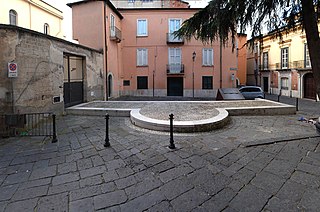
The church of San Marco dei Sabariani was a medieval church in Benevento, placed under the patronage of the Sabariani family and dedicated to San Marco di Eca, whose relics it may have kept. The building occupied part of the current Piazza Salvatore Sabariani, and was destroyed by the Sannio earthquake of 1688. The crypt remains, containing important frescoes of the Benevento school, of the Lombard age or immediately after; Found in 2007, it is currently in a state of neglect and at serious risk of deterioration.
4. Anfiteatro romano di Benevento
The Roman amphitheater was a monumental building of ancient Benevento. Historical sources suggest that it existed in the year 63, because Nero attended a gladiatorial spectacle in the city. The remains of the building were found in 1985 between Via Munazio Planco and the Leproso bridge. Part of the building is buried under the tracks of the Benevento-Cancello railway.
5. Basilica della Madonna delle Grazie
The Basilica of Maria Santissima delle Grazie is a monumental nineteenth-century church in Benevento, to which a Franciscan convent is attached, which was rebuilt after the Second World War. The area where the basilica is located measures an altitude of 126 m above sea level.
Wikipedia: Basilica della Madonna delle Grazie (Benevento) (IT)
6. Chiesa di Santa Sofia
Santa Sofia is a Roman Catholic church in the town of Benevento, in the region of Campania, in southern Italy; founded in the late-8th century, it retains many elements of its original Lombard architecture.
7. Cattedrale di Sancta Maria de Episcopio
Benevento Cathedral is a church in Benevento, southern Italy. The cathedral is the seat of the Archbishops of Benevento. It dates from the Lombard foundation of the Duchy of Benevento, in the late 8th century, but after its destruction during Allied bombings in the course of World War II, it was largely rebuilt in the 1960s.
8. Chiesa di Sant'Ilario a Port'Aurea
The former church of Sant'Ilario in Port'Aurea, of Lombard construction, is located in the city of Benevento, along Via San Pasquale, which was a stretch of the Via Traiana. The name of the church derives from its proximity to the Arch of Trajan, which in the Middle Ages, inserted in the city walls, took the name of Porta Aurea.
9. Terme romane - resti della chiesa di San Pietro delle Monache
The monastery of San Pietro delle Monache was a female Benedictine foundation in Benevento. Attested with certainty from the eleventh century, it was definitively suppressed in 1865. Its structures, reused by the Tobacco Agency, were then destroyed by bombing in 1943. Few ruins remain, which reveal more than anything else the pre-existing Roman age on which the monastery had been erected.
10. Edificio termale
The name Terme di San Cristiano is used informally to denote a Roman building, probably a thermal building, located in the Triggio district of Benevento, around the church dedicated to the saint. What remains of the structure consists of two distinct parts: one, historically known, are three rooms incorporated into the buildings west of Via San Cristiano; the other consists of some ruins in the appurtenances of the Campi house, east of this road. The latter were the subject of archaeological excavations in the 2000s, but the results of the study have not been published.
11. Chiesa di San Domenico
The church of San Domenico is a Baroque church in Benevento; it is located in Piazza Guerrazzi. A convent is annexed to it, now the seat of the Rectorate of the University of Sannio. Its garden is home to Mimmo Paladino's Hortus Conclusus.
12. Ponte delle Serretelle
The Serretelle bridge is an arched bridge believed to be of Roman origin, which stands near Benevento, between the Gran Potenza hill and the Serretelle stream. Below it flowed a modest stream which, descending from the hill, poured into the stream. The bridge, now fallen into disuse, has partly collapsed.
13. Teatro Romano
The Roman Theatre is an ancient Roman edifice in Benevento, southern Italy. It was built in the 2nd century by emperor Hadrian near the city's cardo maximus. Abandoned in Lombard times, it is now surrounded by the medieval Rione (district) Triggio. The structures is still used for concerts, representations and other spectacles.
14. Chiesa di Santa Maria della Verità
The church of Santa Maria della Verità is located in the city of Benevento in Piazza Caio Ponzio Telesino, in the Triggio district. It is built on the ruins of the Roman theater of Benevento. It was called, and some still call it today, a new parish.
Wikipedia: Chiesa di Santa Maria della Verità (Benevento) (IT)
15. Chiesa di San Francesco
The church and convent of San Francesco d'Assisi are located in Piazza Dogana in the historic center of Benevento. According to tradition, the establishment of a Franciscan community in Benevento followed the arrival in the city of Francis of Assisi himself. The convent complex, although remodeled, is one of the main expressions of Gothic architecture in Benevento.
Share
How likely are you to recommend us?
Disclaimer Please be aware of your surroundings and do not enter private property. We are not liable for any damages that occur during the tours.
